AI enhances precision and efficiency
AI works in healthcare in 2024 by applying various techniques and technologies to improve the quality, efficiency, and accessibility of healthcare services and outcomes. Some of the ways AI works in healthcare in 2024 are:
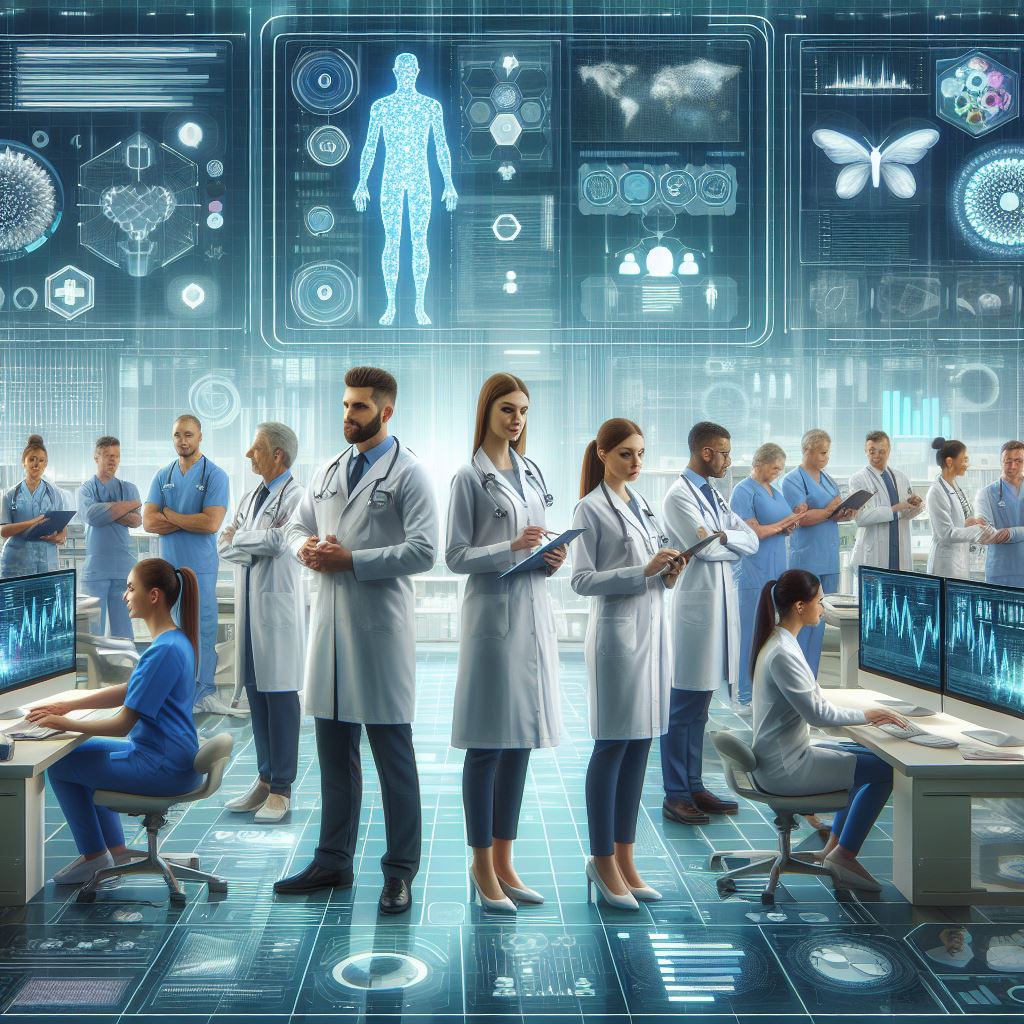
Automating tasks: AI can help automate repetitive or tedious tasks, such as patient notes, billing, scheduling, or data entry. This can save time and resources for healthcare professionals and reduce human errors.
Enhancing diagnosis: AI can help analyze medical images, scans, tests, or symptoms to provide accurate and timely diagnosis. AI can also help detect anomalies, patterns, or trends that may indicate potential health risks or conditions.

Improving treatment: AI can help recommend the best treatment options, drugs, or dosages based on the patient’s medical history, preferences, and goals. AI can also help monitor the patient’s progress and response to treatment, and adjust accordingly.
Personalizing care: AI can help tailor the care delivery to the individual needs, preferences, and values of each patient. AI can also help provide personalized feedback, guidance, or support to the patient through chatbots, virtual assistants, or wearable devices.
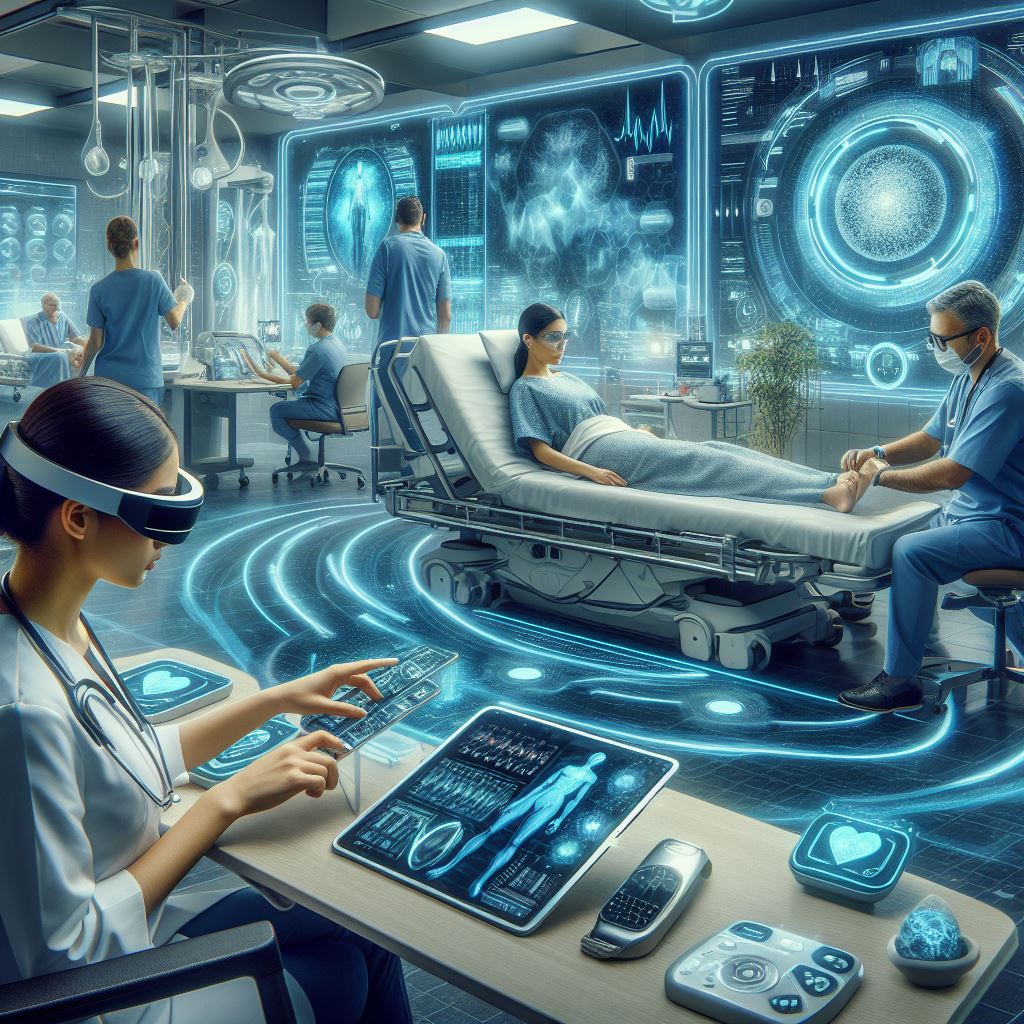
Innovating research: AI can help accelerate the discovery and development of new drugs, therapies, or devices by analyzing large amounts of data, finding novel insights, or generating hypotheses. AI can also help design and conduct clinical trials, or evaluate the effectiveness and safety of interventions
How AI works in healthcare industry
in the healthcare industry works by leveraging various techniques such as machine learning, natural language processing, and computer vision to analyze large amounts of data, including medical records, images, and genetic information. This enables AI systems to assist in diagnosis, treatment planning, drug discovery, personalized medicine, and predictive analytics for patient outcomes. AI algorithms can identify patterns, anomalies, and correlations that might not be readily apparent to human healthcare providers, leading to more accurate diagnoses, more effective treatments, and improved patient care. Additionally, AI can automate administrative tasks, streamline workflows, and improve operational efficiency in healthcare settings.
https://www.philips.com/a-w/about/news/archive/features/2022/20221124-10-real-world-examples-of-ai-in-healthcare.html AI in healthcare applications that revolutionize the industry by enhancing diagnostics, treatment, patient care, and administrative tasks. Here’s an overview:

Medical Imaging Analysis: AI algorithms analyze medical images such as X-rays, MRIs, and CT scans to assist radiologists in detecting abnormalities, tumors, fractures, and other conditions with greater accuracy and efficiency
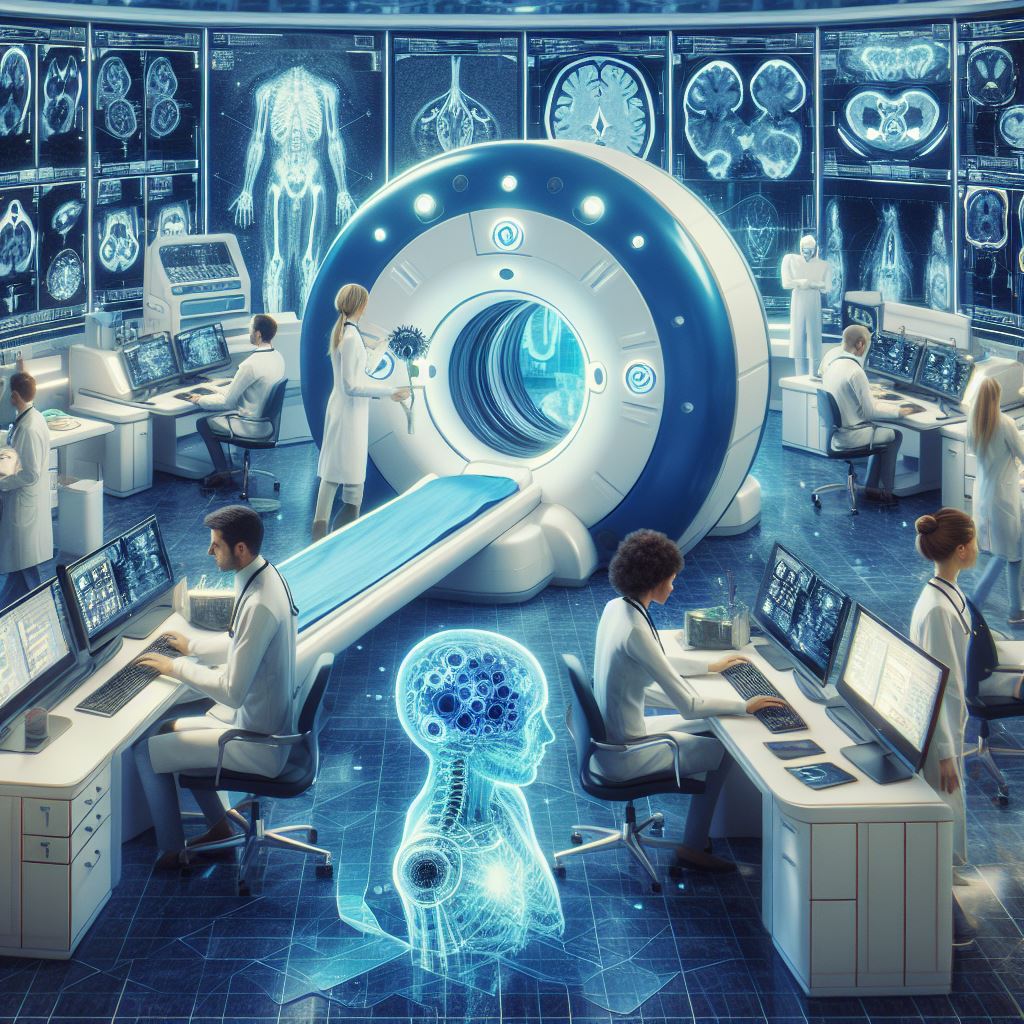
Diagnosis Assistance: AI systems can process patient data, including symptoms, medical history, and lab results, to provide diagnostic suggestions to healthcare providers. This helps in identifying diseases earlier and selecting appropriate treatment plans.
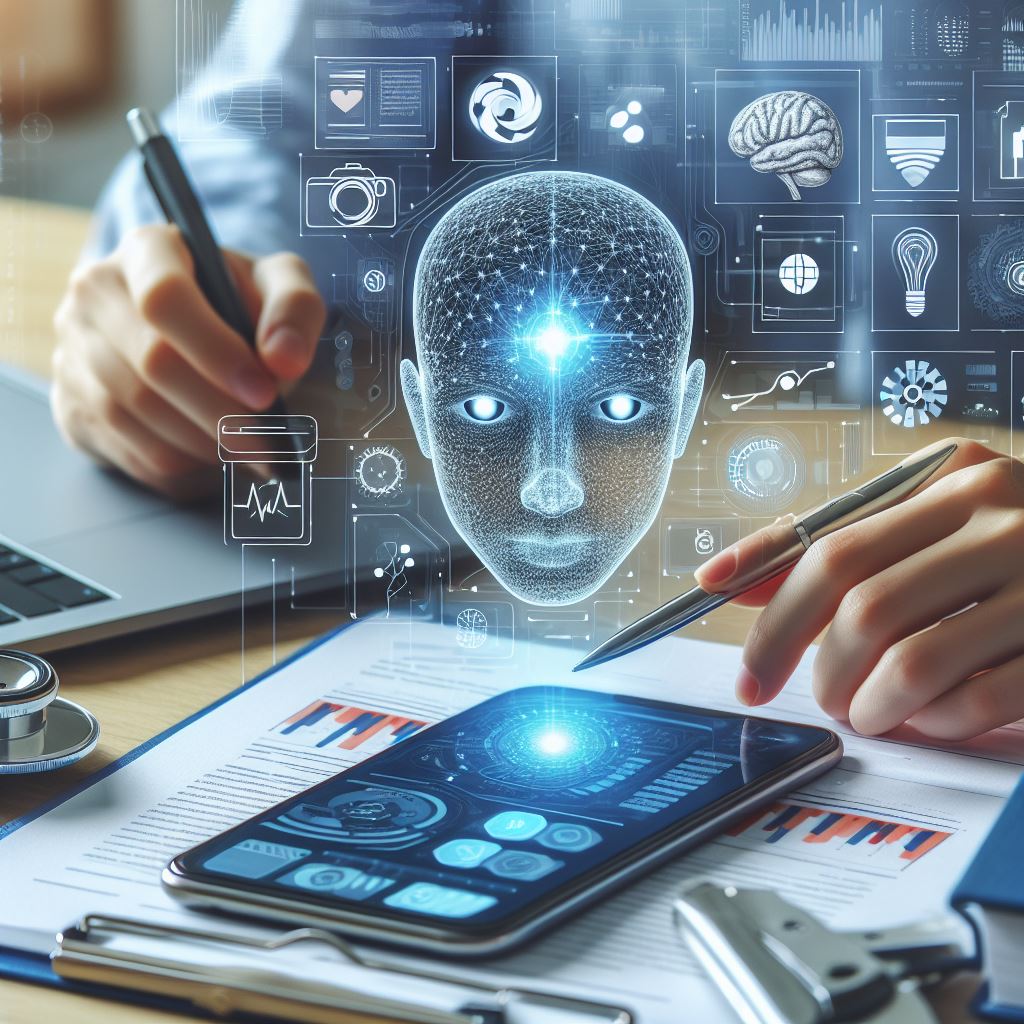
Personalized Treatment Planning: By analyzing patient data and medical literature, AI can recommend personalized treatment plans based on factors such as genetic predispositions, lifestyle, and previous treatment outcomes.
Drug Discovery and Development: AI accelerates drug discovery by analyzing vast datasets to identify potential drug candidates, predict their efficacy, and optimize their molecular structures. This leads to faster development timelines and reduced costs.
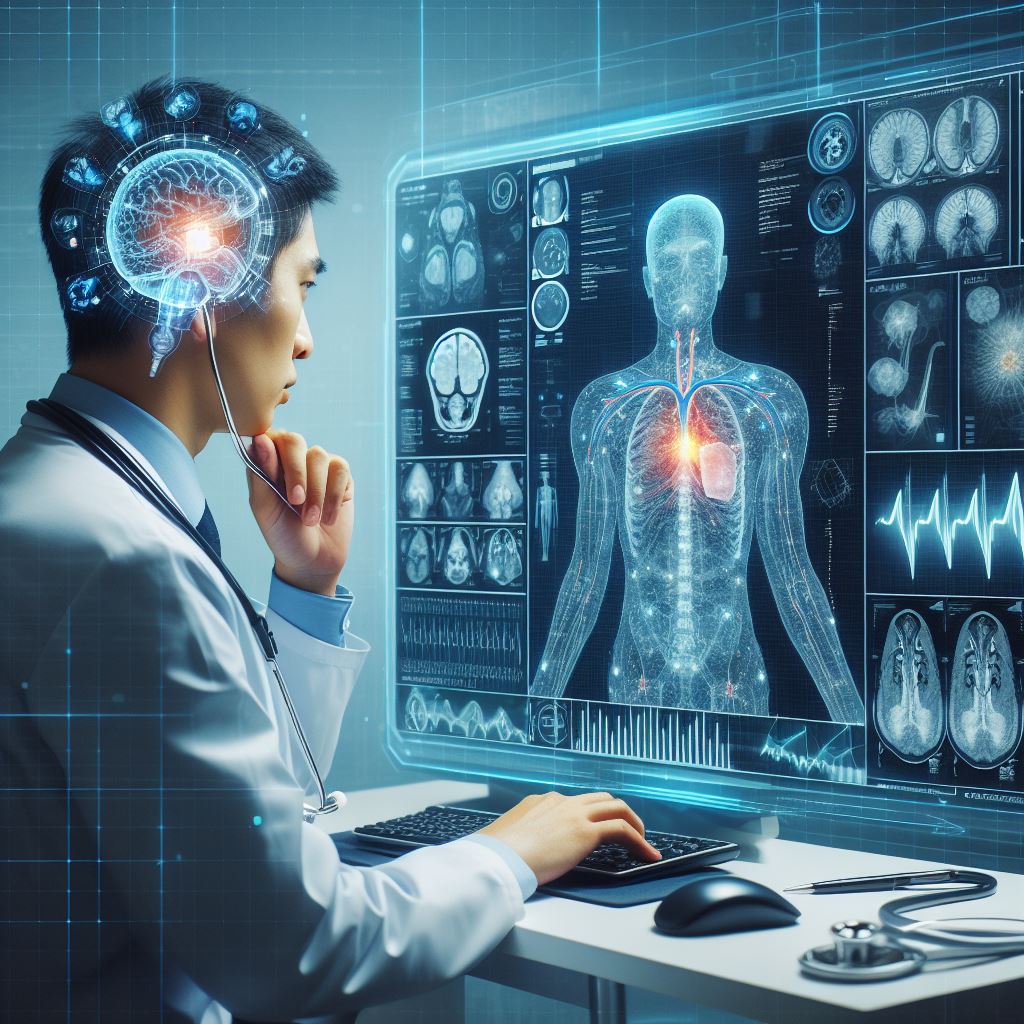
Remote Patient Monitoring: AI-powered devices and wearables can continuously monitor patients’ vital signs, detect deviations from normal parameters, and alert healthcare providers to intervene promptly. This is particularly beneficial for managing chronic conditions and post-operative care.
Predictive Analytics for Patient Outcomes: AI algorithms analyze patient data to predict outcomes such as hospital readmissions, infections, and complications. This enables proactive interventions to prevent adverse events and improve overall patient outcomes.
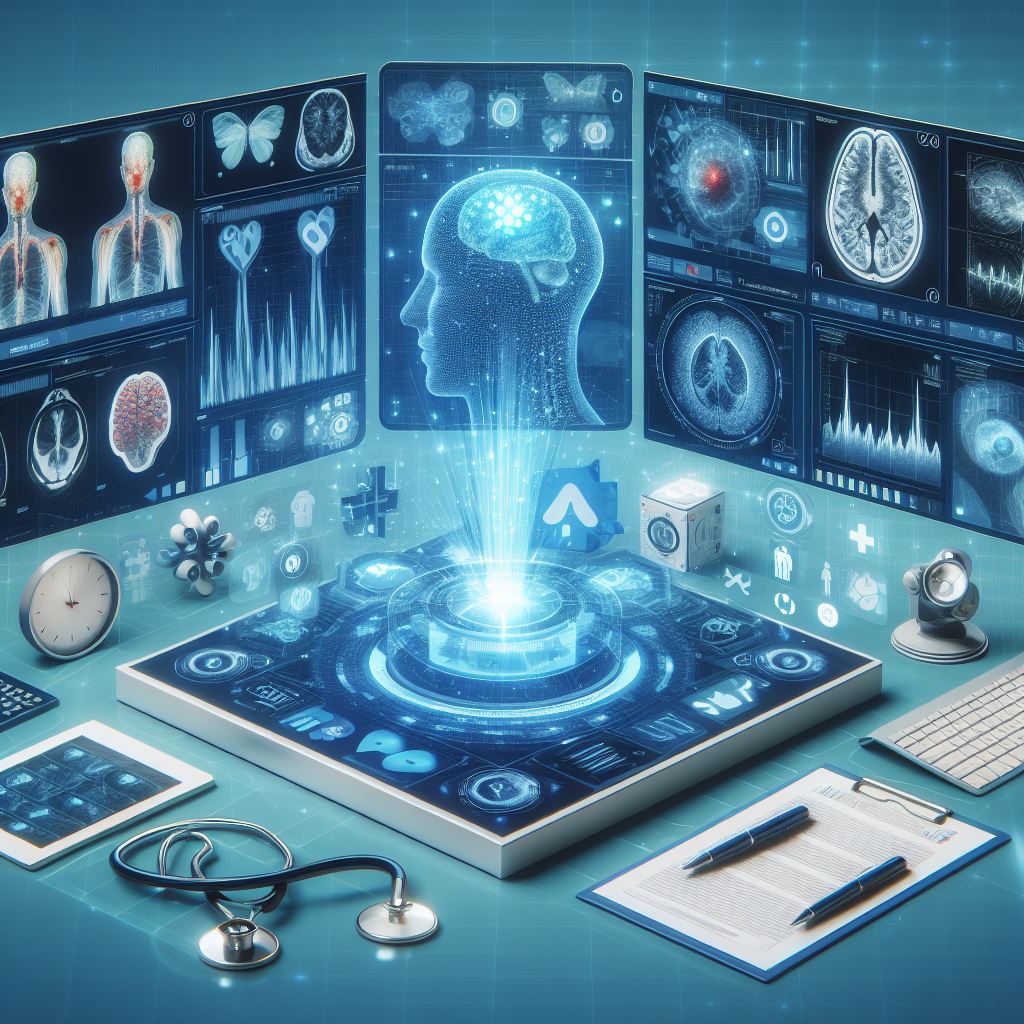
Natural Language Processing (NLP) for Electronic Health Records (EHR): NLP techniques extract valuable information from unstructured clinical notes, EHRs, and medical literature, facilitating better documentation, decision-making, and research.
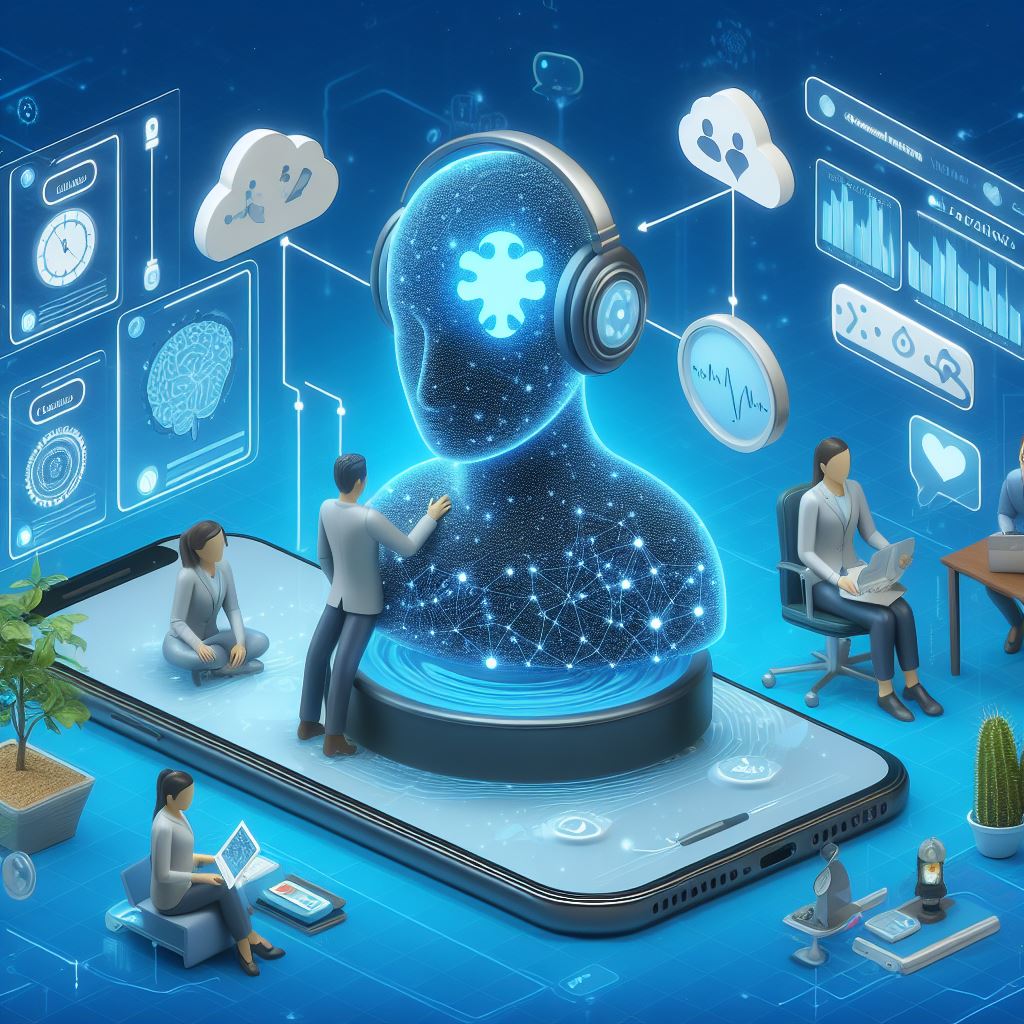
Virtual Health Assistants and Chatbots: AI-powered virtual assistants provide patients with personalized health advice, medication reminders, appointment scheduling, and triage services, improving access to healthcare services and reducing administrative burdens on staff.
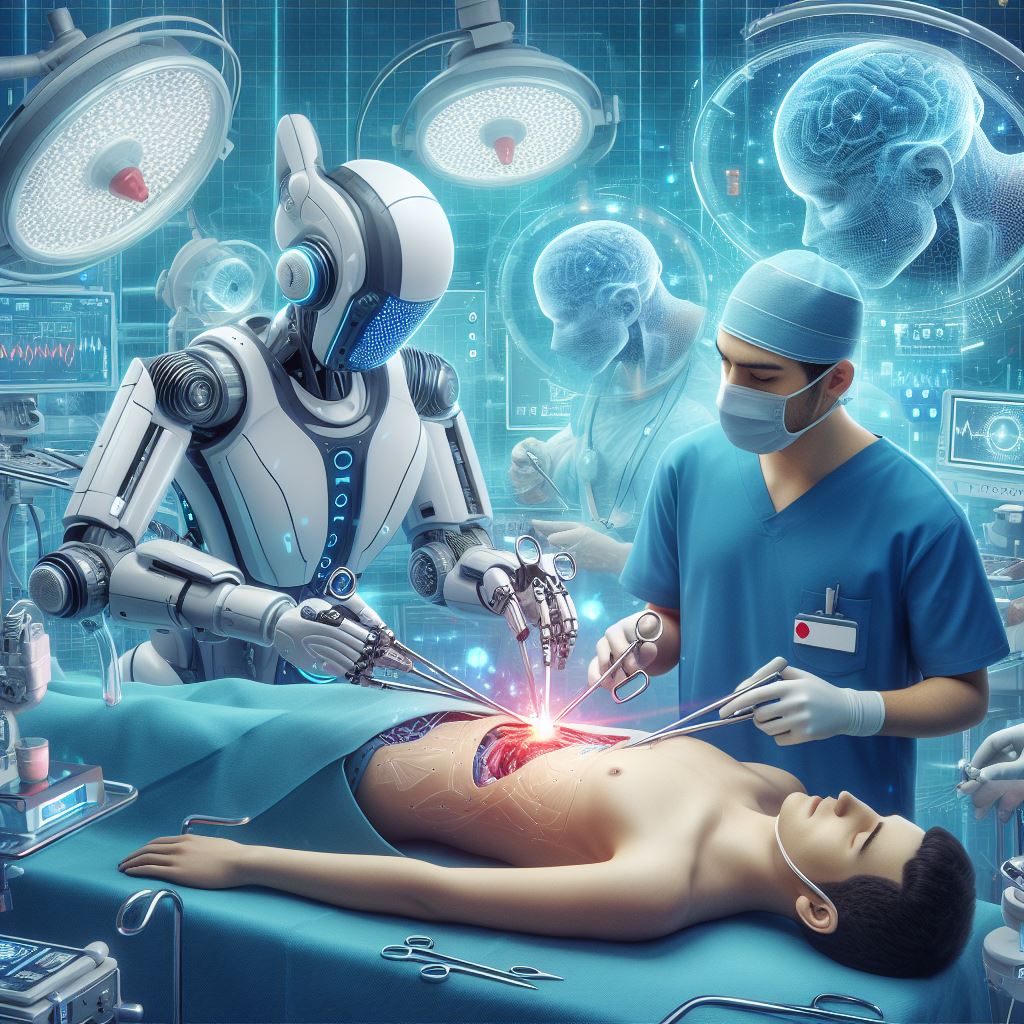
Robotic Surgery: AI enhances precision and efficiency in surgical procedures by guiding robotic surgical systems to perform complex tasks with minimal invasiveness, reducing complications and recovery times.
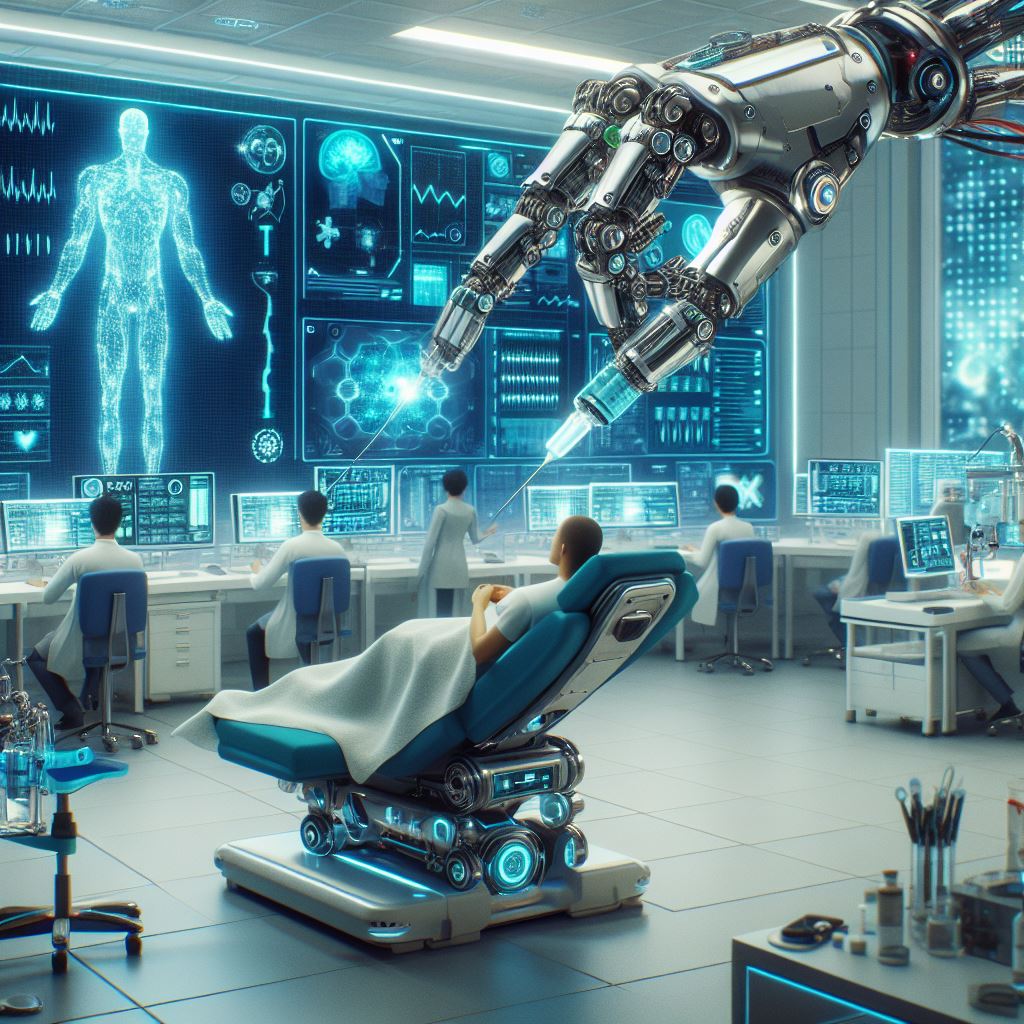
Administrative Automation: AI automates administrative tasks such as billing, coding, and claims processing, reducing errors, optimizing resource allocation, and improving overall operational efficiency in healthcare organizations.
Genomic Medicine:AI analyzes genomic data to identify genetic mutations, predict disease risk, and guide personalized treatment strategies.Genomic sequencing coupled with AI enables precision medicine approaches, allowing for targeted therapies and better management of genetic disorders and cancer.
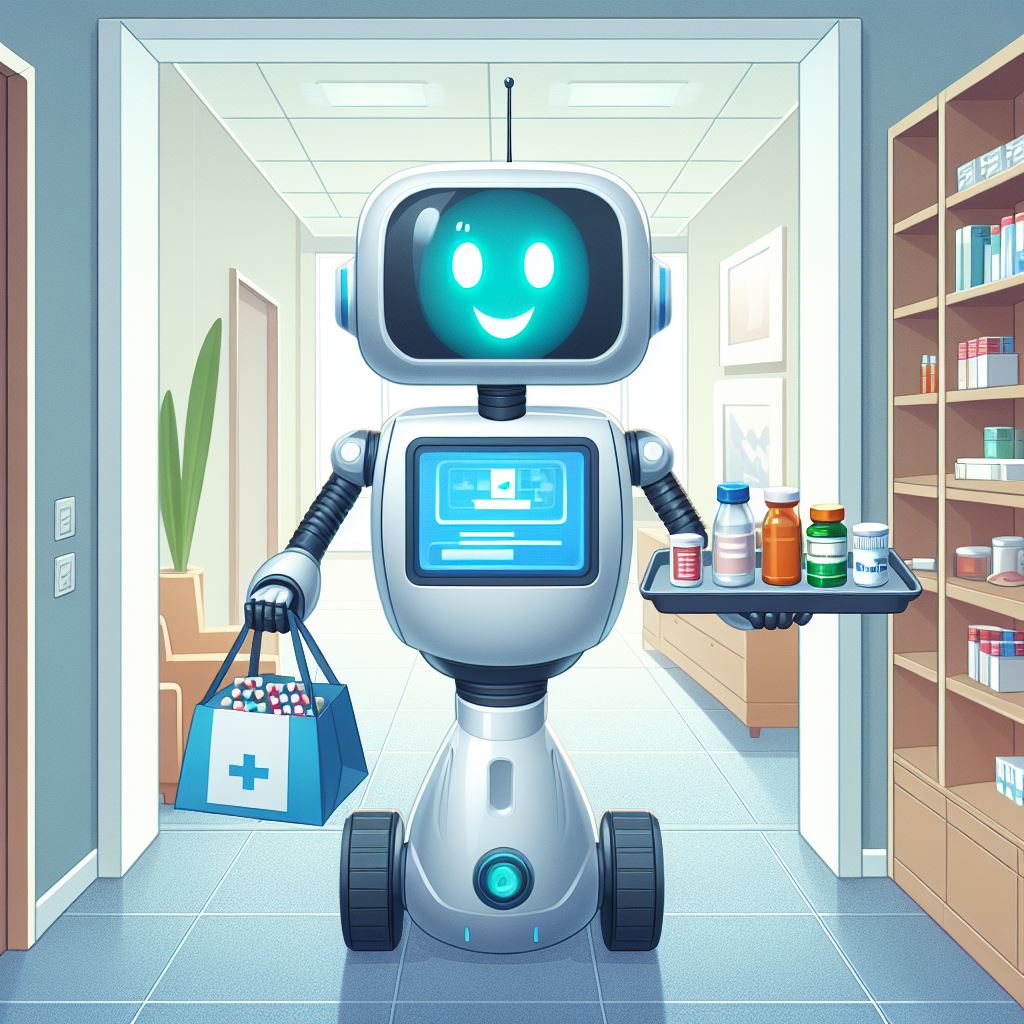
Healthcare Robotics:AI-powered robots assist with various healthcare tasks, including patient care, medication delivery, and rehabilitation.Robots equipped with sensors and AI algorithms can monitor patient conditions, provide companionship to the elderly, and support physical therapy exercises, enhancing patient outcomes and reducing caregiver burden.
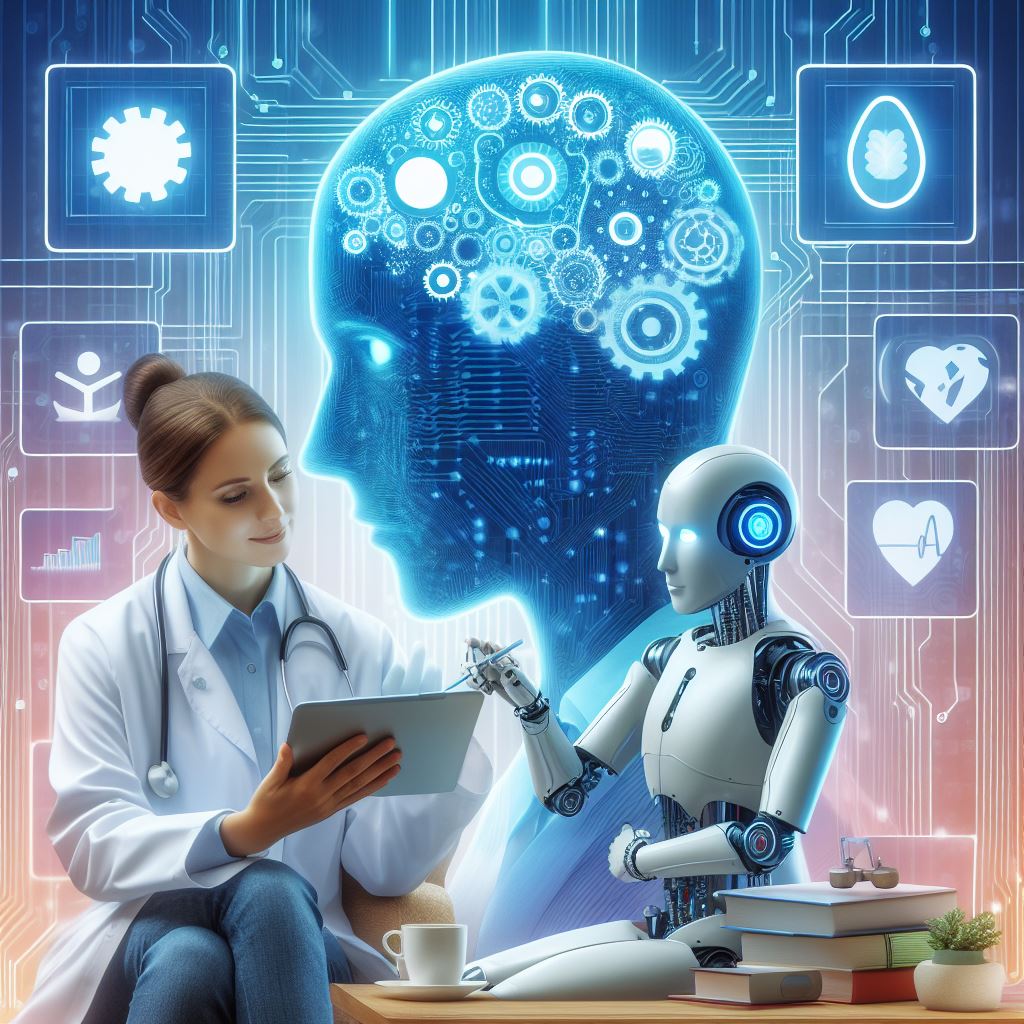
Clinical Decision Support Systems (CDSS):AI-driven CDSS analyze patient data in real-time to provide clinicians with evidence-based recommendations and alerts.These systems help healthcare providers adhere to clinical guidelines, avoid medical errors, and improve patient safety by incorporating the latest medical knowledge and best practices into decision-making processes.
Healthcare Fraud Detection:AI algorithms detect patterns of fraudulent activities in healthcare claims, billing, and insurance data.By flagging suspicious behaviors and anomalies, AI helps insurance companies and healthcare organizations combat fraud, waste, and abuse, preserving resources and maintaining the integrity of the healthcare system.
Mental Health Monitoring and Support:AI-powered chatbots and virtual therapists offer mental health support by engaging users in conversations, providing psychoeducation, and offering coping strategies.These digital mental health tools promote early intervention, destigmatize mental health issues, and increase access to mental healthcare services, especially in underserved communities.
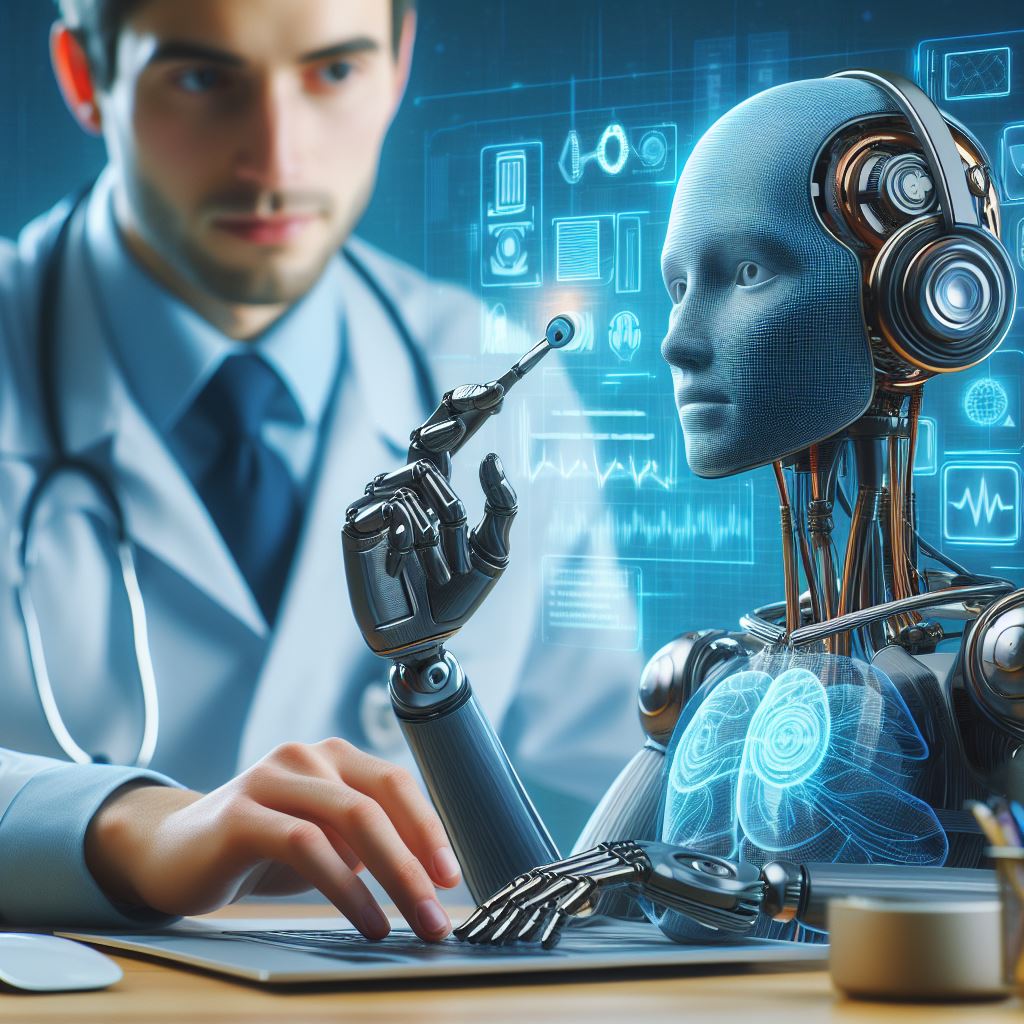
Public Health Surveillance and Epidemiology:AI analyzes population-level data, including social media posts, news articles, and electronic health records, to track disease outbreaks and monitor public health trends.Early detection of infectious diseases, coupled with predictive modeling, enables authorities to implement timely interventions, allocate resources effectively, and mitigate the spread of illness within communities.
Drug Repurposing and Combination Therapy:AI identifies existing drugs that could be repurposed for new therapeutic indications or combined with other medications to enhance efficacy.By leveraging large-scale data analytics and computational modeling, AI accelerates drug discovery efforts, reduces research costs, and brings novel treatment options to market more quickly.
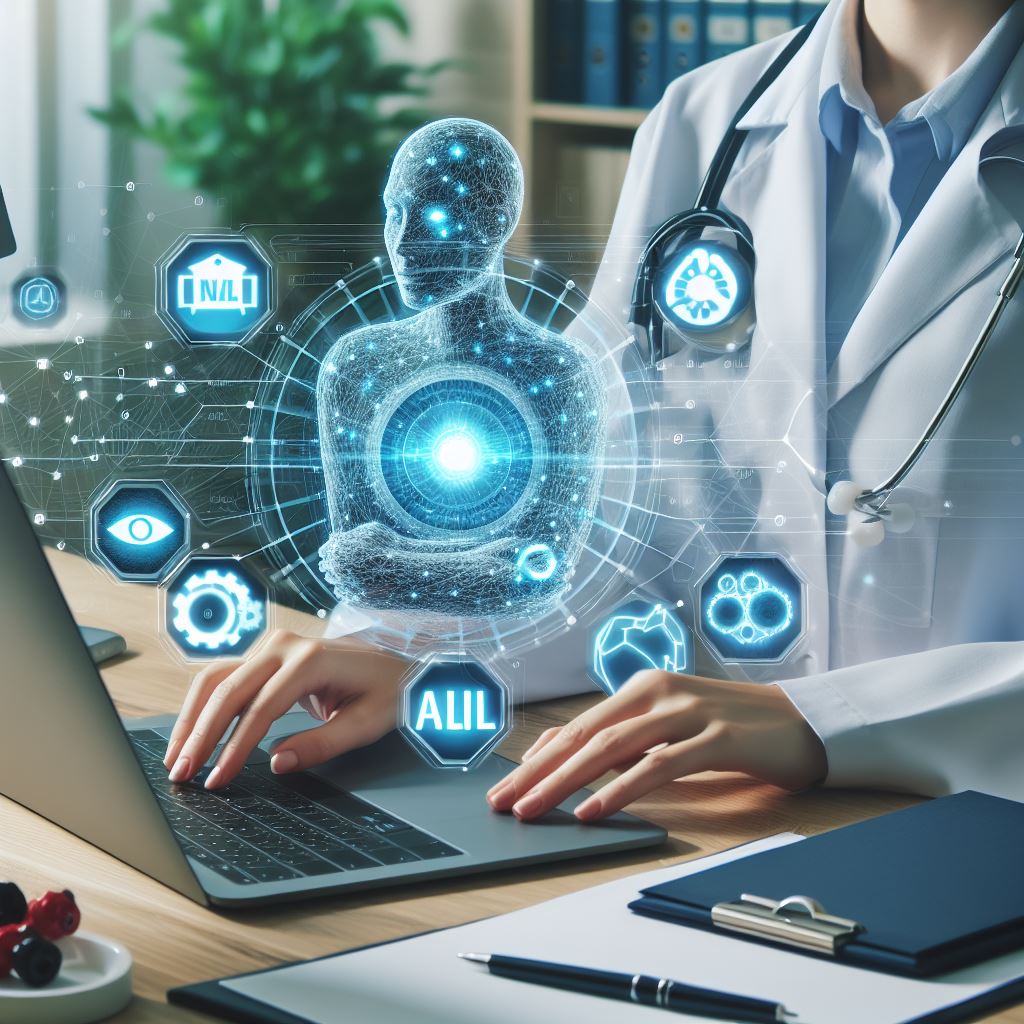
Continuous Learning and Improvement:AI algorithms continuously learn from new data and user interactions, refining their performance and adapting to evolving healthcare challenges.This iterative process of learning and improvement ensures that AI-driven healthcare solutions remain up-to-date, accurate, and clinically relevant, enhancing their utility and effectiveness over time.

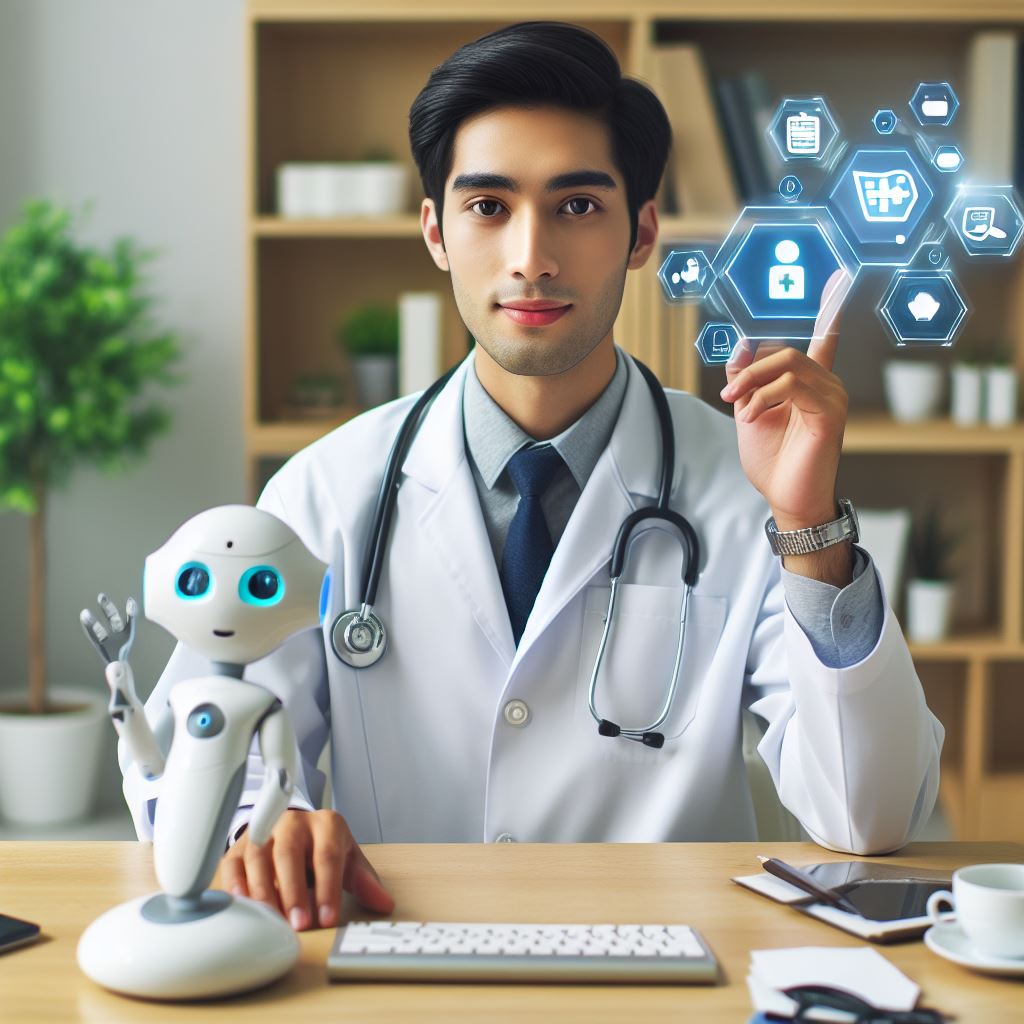
Very very usefull content
Very nice
Keep it up
Great 👍 work
Nice blog on health care
I m waiting for this
Please make more blogs